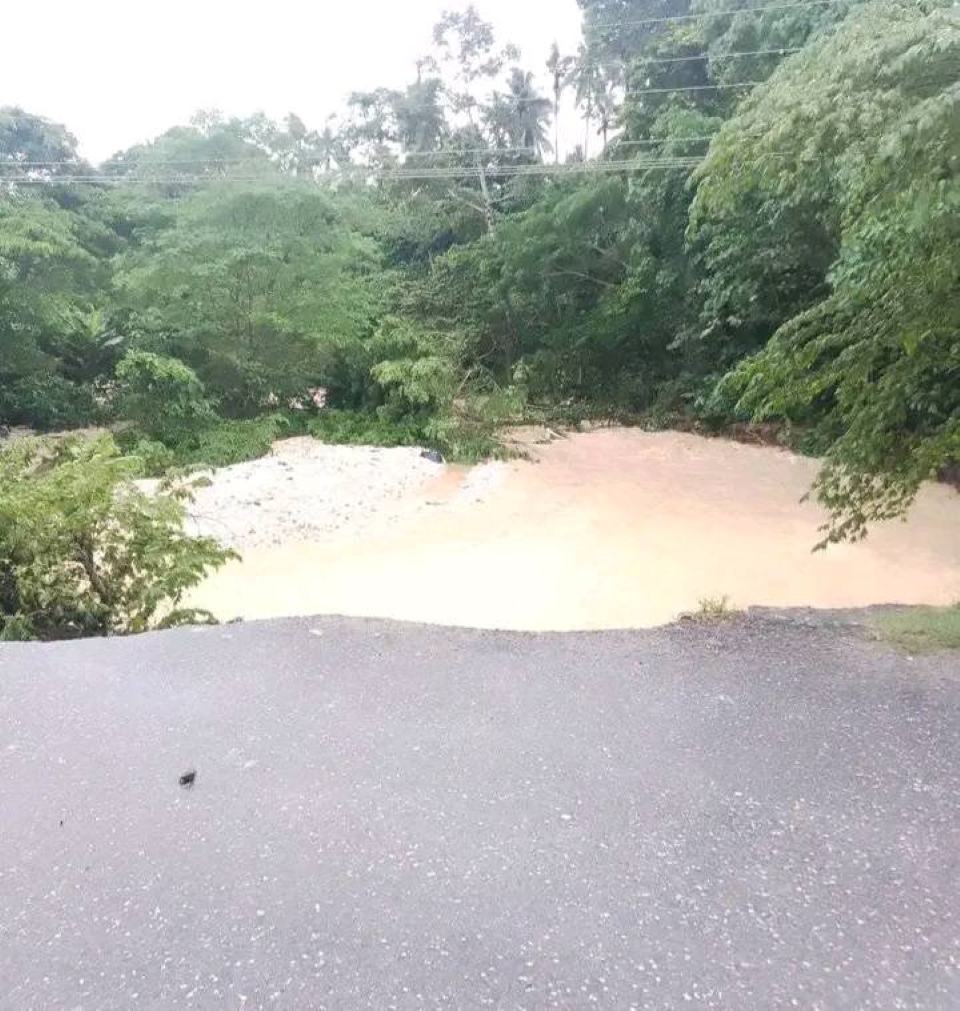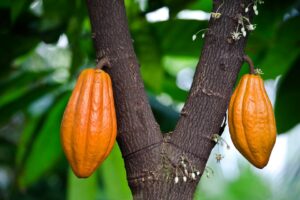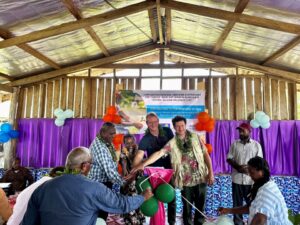BY JOHN HOUANIHAU
IN a tragic turn of events, yesterday’s devastating floods wreaked havoc on critical road infrastructure connecting three key bridges in the North-West region of Guadalcanal province.
The aftermath of this catastrophe has left local farmers in dire circumstances, grappling with significant challenges that may hinder their livelihoods for the foreseeable future.
The heavy rains and surging flash floods that swept through the region highlighted the vulnerability of the area’s infrastructure during the current wet season experienced throughout the country. Amidst the devastation, the key roads connecting the three bridges in the North-West Guadalcanal— Tanavasa Bridge, Kohimarama Bridge, and Tamboko Bridge—were severely impacted, causing them to be structurally unreliable.
Local freelance journalist Jimmy Nolan described yesterday’s heavy rainfall in North West Guadalcanal as a devastating blow to the local community, particularly farmers, and caused flooding that uprooted gardens in the area.
Nolan reported to ENVIRONMENRT MEDIA that the torrential downpour last night resulted in severe damage and collapse to the roads connecting the three permanent bridges in the constituency.
“This damage comes after the heavy rain yesterday that went on throughout the night, which caused the flooding. I think this is a sad thing for people in the constituency and North-West Guadalcanal.
“The impacts of these collapsed roads will have a particularly crippling effect on the local farming community, whose daily operations have been severely disrupted. Farmers are now faced with the difficult task of finding alternate routes to reach the market to sell their agricultural crops.

“It is a big slap in the face for the farmers since repairing and connecting the collapsed roads caused by the heavy downpour and flash flood will take time,’’ he said.
Nolan also painted a grim picture of the aftermath, suggesting that the effects of this rainfall would have a significant impact on the lives and livelihoods of the people living in North West Guadalcanal.
He continued that with the roads damaged, transportation and connectivity are likely to be severely affected, making it difficult for rural residents to access essential services and goods. Also, the destruction of gardens can be a serious setback for farmers, who heavily rely on their crops for sustenance and income.
He said that the intensity and unexpectedness of the rainfall and flash flood indicate that the community was taken by surprise and unprepared for such extreme weather.
“I recalled that this is the second time the roads and bridges were destroyed and collapsed by the flash floods in this region of Guadalcanal; it happened in April 2014,” he recalled.
Nolan noted that the rural residents and farmers are now struggling and stranded to find possible means to come to Honiara.
“People are now seeking other alternative means of transportation; some have resorted to Outboard Motors (OBM) for transportation to Honiara. But this will be expensive, hard work, and dangerous.
“Transport vehicles are now stranded with farmers’ agricultural crops with no way to go,” he said.




